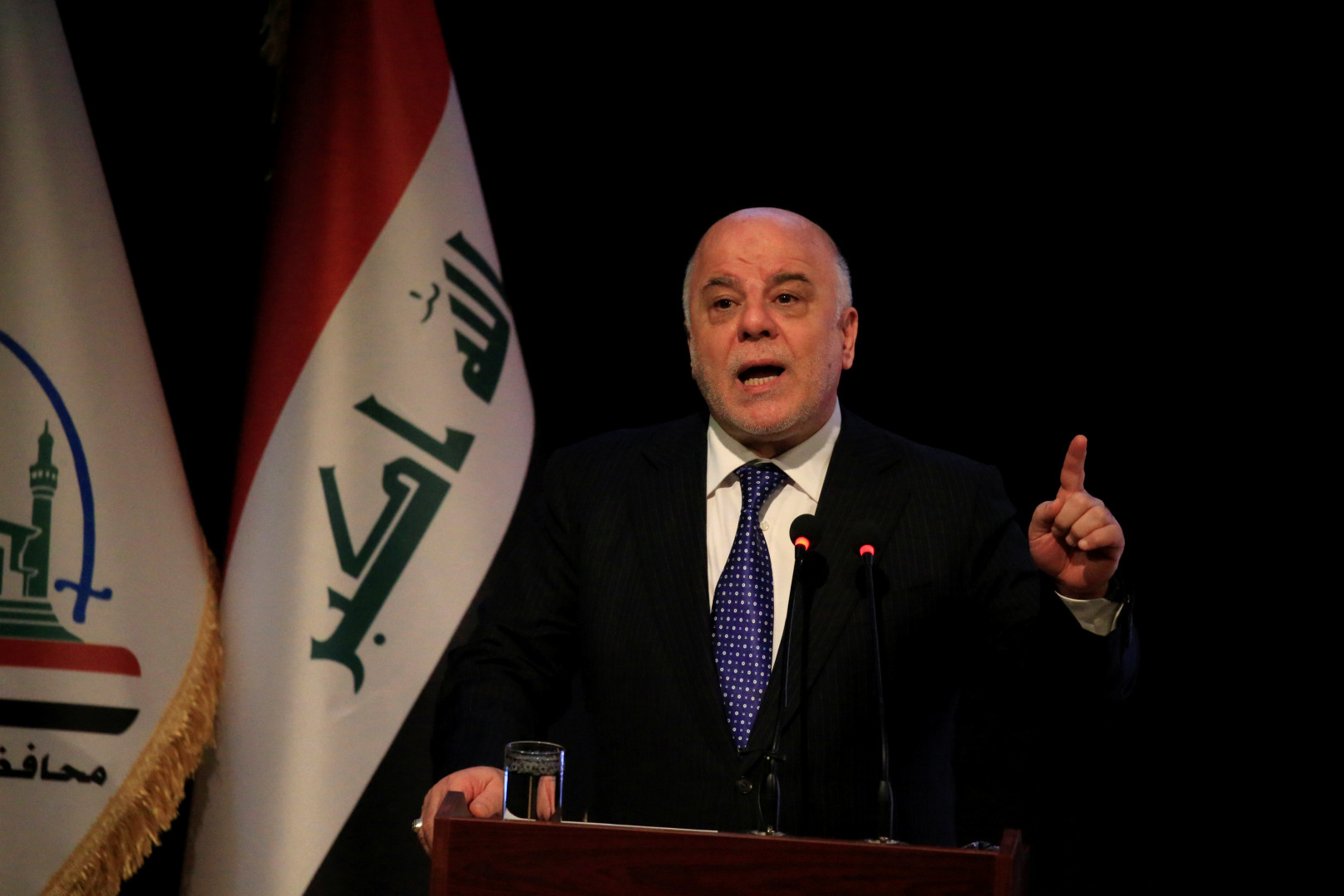Al-Abadi is out of the political calculations as a candidate to head the next Iraqi government
Al-Abadi is out of the political calculations as a candidate to head the next Iraqi government
2022-01-18 07:40
 Shafaq News/ A source in the Sadrist movement led by Muqtada al-Sadr revealed, on Tuesday, that the head of the “Victory” coalition Haider al-Abadi has become outside the accounts of the political blocs as a candidate for the position of prime minister of the next Iraqi government.
Shafaq News/ A source in the Sadrist movement led by Muqtada al-Sadr revealed, on Tuesday, that the head of the “Victory” coalition Haider al-Abadi has become outside the accounts of the political blocs as a candidate for the position of prime minister of the next Iraqi government.
The source told Shafaq News Agency, “The number of candidates for the position of Prime Minister does not exceed the fingers of a hand,” without mentioning their names.
He added that “Al-Sadr is the first and last decision-maker in choosing the person he deems appropriate to head the next government according to the perspective of the national majority,” apparently in reference to Al-Sadr’s refusal to nominate Al-Abadi for the position of prime minister of the new federal government.
Haider al-Abadi, former Prime Minister of Iraq, and one of the leaders of the coordination framework that includes Shiite political forces opposed to the results of the legislative elections that took place last year.
A source in the coordination framework had previously told Shafaq News Agency, that the framework had tried to push both Haider al-Abadi or Muhammad Tawfiq Allawi as settlement candidates, in front of a mini-list with al-Sadr that included Mustafa al-Kazemi with Sadrist figures.
The head of the Al-Fateh Alliance had made a quick visit to Erbil yesterday, Monday, during which he met with the Kurdish leader Massoud Barzani, the President of Kurdistan Region, Nechirvan Barzani, and the President of the Regional Government, Masrour Barzani.
Al-Amiri had proposed, during his meetings in Erbil, the name of Haider al-Abadi, a compromise candidate for prime minister, but this was met with the rejection of leader Massoud Barzani, according to another source.
The framework is trying to persuade al-Sadr to form a “settlement government” in the event that entry into a unified Shiite bloc comprising all parties fails, and this proposal enjoys the support of specific Iranian parties.
However, the private discussions between al-Sadr and the coordination framework did not reach a specific agreement, in addition to al-Sadr’s rejection of the framework’s attempts to include Nuri al-Maliki in the new government synthesis.
The dispute raged between the two Shiite poles represented by the Sadrist movement, which won the highest votes in the elections that took place on the tenth of October last year, and the coordination framework that includes blocs that expressed their rejection of the election results.
The leader of the Sadrist movement, Muqtada al-Sadr, insists on forming a majority government that excludes figures from the coordination framework who played an active role in the political process over the past years.
On the tenth of last October, Iraq held early legislative elections to get out of a political crisis that swept the country after large demonstrations in the central and southern regions in 2019 in protest against the widespread unemployment in society, the spread of financial and administrative corruption in government departments and institutions, and the deteriorating reality The service and the livelihood, which prompted the former prime minister, Adel Abdul-Mahdi, to resign under popular pressure.
As soon as the preliminary results of the recent elections were announced, the voices of political forces and actors rose in their rejection of losing many seats, accusing them of major fraud in the ballot, which was denied by the executive and judicial authorities, at a time when the United Nations and international organizations praised the integrity of the electoral process.
shafaq.com
